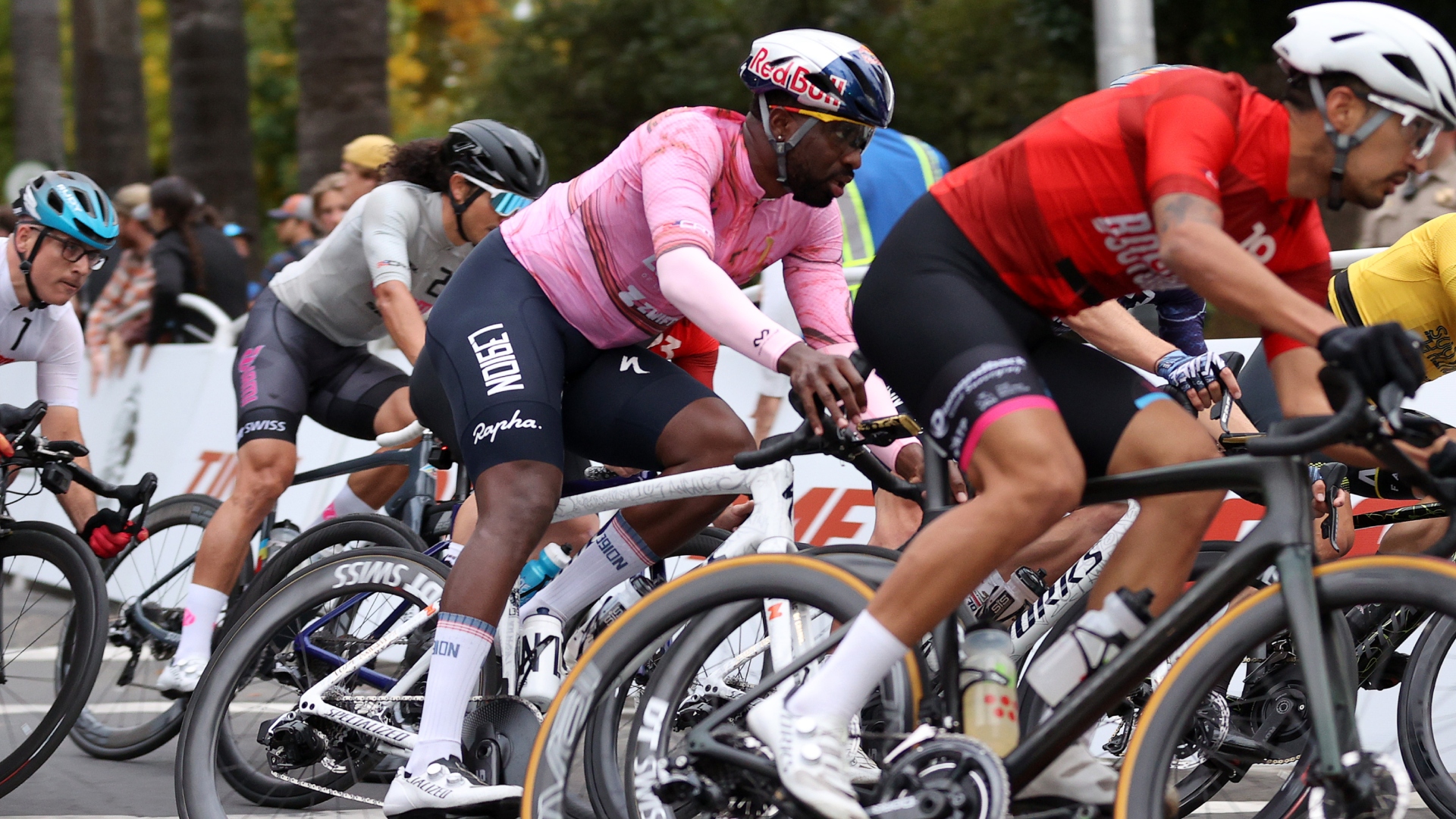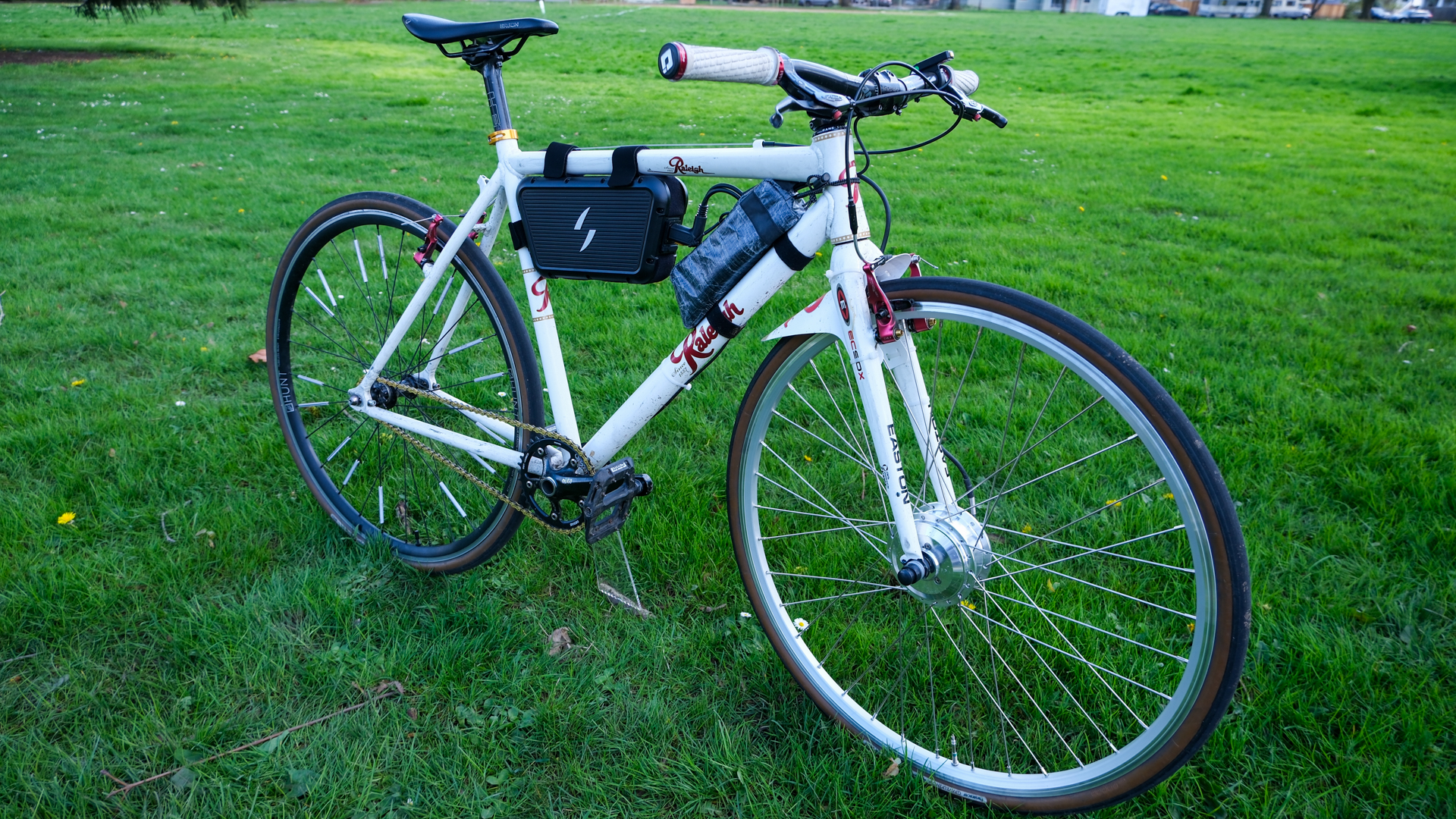The Tour de force
Why the Tour de France is the most important bike race of the year.
Words by Edward Pickering in Les Herbiers
Friday July 1, 2011
There’s a stiff breeze blowing across the Vendée from the Atlantic Ocean, but it’s not enough to blow away the growing sense of excitement that the start of the Tour de France is less than 24 hours away.
(It’s also, incidentally, not strong enough to blow away the persistent odour of controversy which Alberto Contador and Bjarne Riis have brought with them. They’d have to hold the Grand Départ on Mont Ventoux during the Mistral to have any chance of that.)
The excitement is palpable, and that’s because the Tour de France is the biggest, most important bike race in the world. I’m reluctant to describe it as the best race in the world, since I’ve already done that about the Tour of Flanders this season. But in my opinion, it’s the best stage race, bar none.
The reasons for this are cultural and geographical. There’s no other country in the world where the Tour could be so successful – France has the perfect landscape, variety of terrain and cuiture for a three-week bike race. It also laid claim to the perfect time on the calendar to hold a race – midsummer. The Giro has the culture and landscape, but not the midsummer slot, nor the same history. And while it’s fashionable for racing purists to prefer the Giro, supported by a stunning race in 2010, the Italian race is, and always has been, second best. If the Giro ever stands tall, it’s because it stands on the shoulders of the Tour.
Get The Leadout Newsletter
The latest race content, interviews, features, reviews and expert buying guides, direct to your inbox!
France is such a perfect shape for a Grand Tour that it could have been designed by ASO. The three mountain ranges allow the organisers to guarantee hard racing. Around the fringes – in the Vosges and Brittany – there’s rolling terrain. Then, in between – across the North, down the west coast, and in the far south, between the Alps and Pyrenees – there are the plains. Each region has its own character and affects the racing in its unique way. The flatlands in the south are prone to strong winds and suffocating heat, while the steep hills of Brittany wear down the peloton until it can no longer maintain its integrity, and splits into groups of ever-reducing numbers.
But it’s not just France’s physical geography that has shaped the race. Human geography has played a part. Historically, France is a rural country – there are a few dense population centres, but the heart of France beats strongest in the vast spaces between the cities, which are dotted with villages and small towns. There’s a fine mesh of people spread more or less evenly over the whole country, which is crucial, because this distribution of population has given the Tour one of its most important assets – its public. I’ve occasionally driven the route of a stage from start to finish, ahead of the race, and what is most striking is that every few kilometres, the Tour encounters a population centre of some description, and that without fail, it looks like the biggest thing to have happened there in years. With the bunting, flowers, banners, colour, noise and general celebration, it reminds me most of my memories of the 1981 Royal Wedding. Only over three weeks instead of one day.
The Tour sells many things these days. Mobile phone manufacturers, media companies, banks and technology companies sponsor the teams. Vittel (water), Skoda (cars), Carrefour (a supermarket) and Crédit Lyonnais (a bank) are the Tour’s major backers. On a smaller level, bike manufacturers, hotel chains, car hire companies, catering companies and sweet makers are all relying on the Tour to sell their products to the public. Despite the press officers’ best efforts to squeeze the media, the Tour also sells newspapers, and our place in the race hierarchy reflects the original raison d’être of the Tour: to sell newspapers.
But overall, what the Tour sells best is France itself. The race is only part of the story of the Tour. Just as the hills, mountains and plains are showcased, so is the food, wine, culture and history. Part of the adventure of following the Tour is the opportunity to eat excellent local specialities on a daily basis or to experience an entirely new culture in the evening from the one we experienced in the morning.
The tourist office of each stage town won’t have a busier few weeks at any other time – I’m sitting typing this with a bag containing local sea salt, a bottle of Troussepinette (a local fruit-flavoured apéritif) and some Vendéen honey, handed out at the press room reception desk. These have all been provided by the Vendée Conseil Général to encourage journalists and the Tour to spread the word about their corner of France. Given that I’ve already decided to bring my own family back here one day, I’d say they’ve succeeded.
So the Tour takes place in a beautiful country with an interesting culture. So what? What about the bike racing?
The bike racing doesn’t actually matter so much, although it will still take centre stage, and provide most of the talking points over the next three weeks. But the true star of the Tour de France is France itself.
Cycle Sport's Tour Village: All of our Tour coverage.
Follow us on Twitter: www.twitter.com/cyclesportmag

Thank you for reading 20 articles this month* Join now for unlimited access
Enjoy your first month for just £1 / $1 / €1
*Read 5 free articles per month without a subscription

Join now for unlimited access
Try first month for just £1 / $1 / €1
Edward Pickering is a writer and journalist, editor of Pro Cycling and previous deputy editor of Cycle Sport. As well as contributing to Cycling Weekly, he has also written for the likes of the New York Times. His book, The Race Against Time, saw him shortlisted for Best New Writer at the British Sports Book Awards. A self-confessed 'fair weather cyclist', Pickering also enjoys running.
-
 Can you make a living as an American domestic road racer? A look inside the part-time professionalism of the American road peloton
Can you make a living as an American domestic road racer? A look inside the part-time professionalism of the American road pelotonAfter decades of booms and busts, the American road scene finds itself in a fragile place. We spoke to riders to understand the reality of chasing the dream on home soil
By Logan Jones-Wilkins
-
 5 things I wish I’d known before reviewing the Swytch GO e-bike conversion kit
5 things I wish I’d known before reviewing the Swytch GO e-bike conversion kitSwytch offers an effective, albeit untidy, workaround for e–bike–curious riders. But as prices drop on full e-bikes, its value proposition may be fading
By Anne-Marije Rook